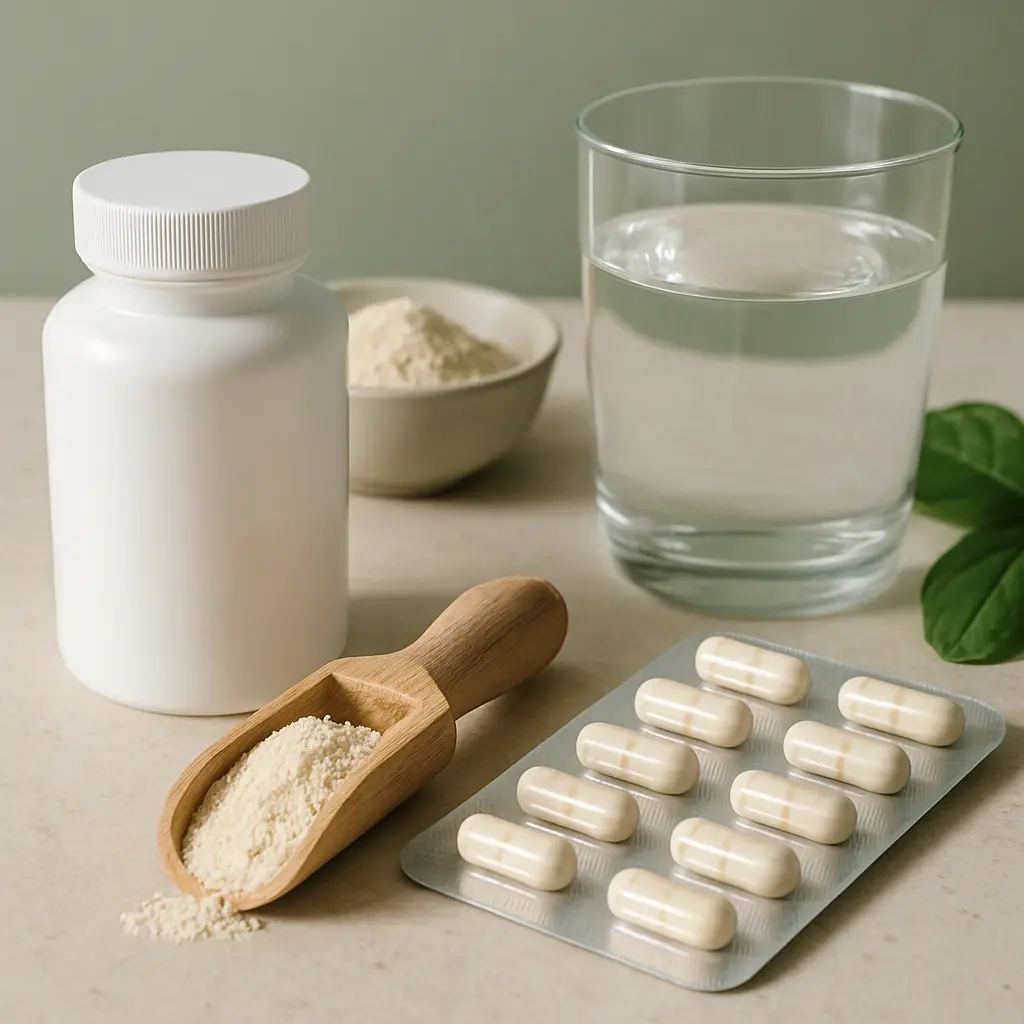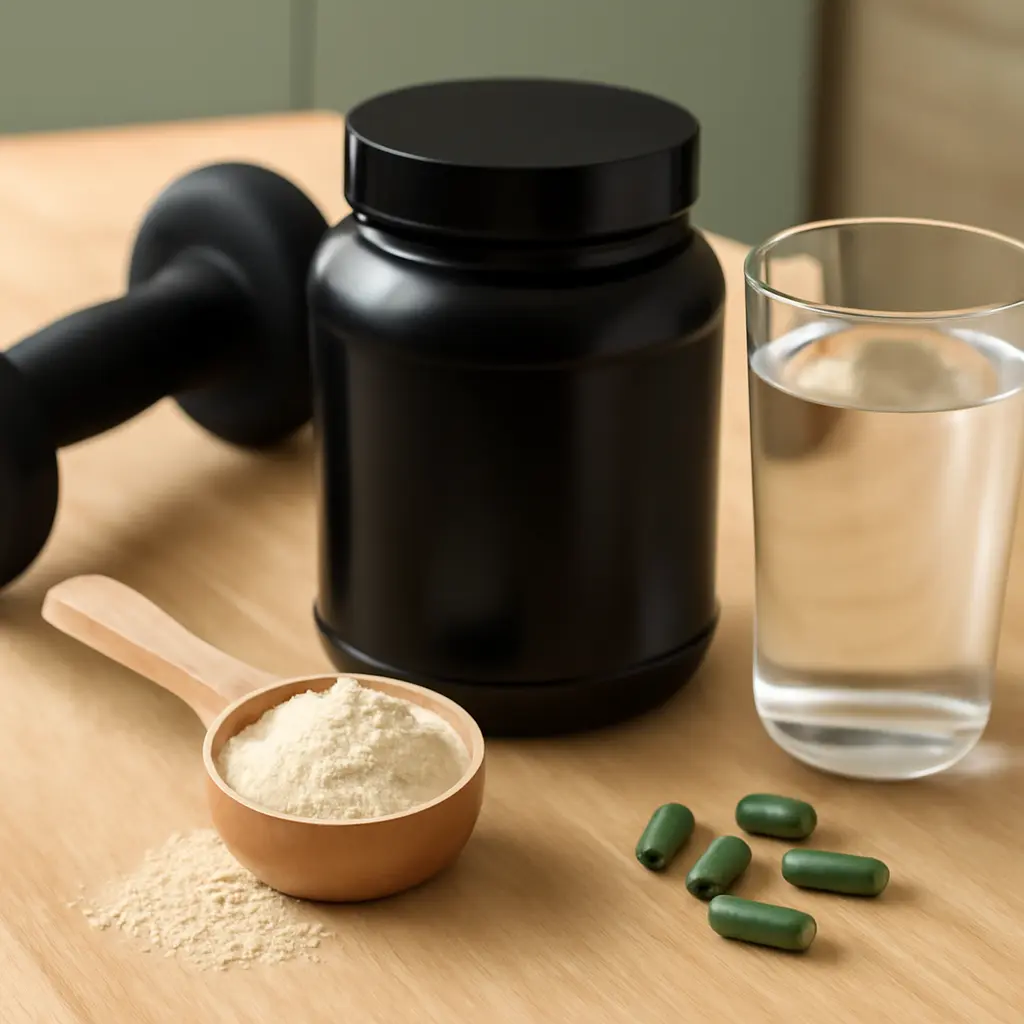
Choosing the Right Supplement for Muscle Building: A Comprehensive Guide
In this page
Building muscle is a multifaceted process that requires a well-rounded approach involving diet, exercise, rest, and sometimes supplementation. In this article, we’ll explore the key factors to consider when selecting a muscle-building supplement, the role of additional nutrients, and effective dosing strategies. By the end of this guide, you’ll have a better understanding of how to incorporate these elements into your fitness regimen for optimal results.

Scientific Background and General Context
The process of building muscle, or hypertrophy, is primarily driven by resistance training and adequate nutritional support. When you lift weights, you create microscopic tears in muscle fibers. During recovery, these fibers repair and grow stronger, a process that necessitates sufficient protein intake and other nutrients to fuel muscle synthesis. Supplements can play a role in this process by providing concentrated sources of essential nutrients that might otherwise be challenging to consume in adequate amounts through food alone. The most common supplements for muscle growth include protein powders, creatine, and branched-chain amino acids (BCAAs). Each of these serves a distinct purpose in muscle development:- **Protein Powders**: Typically derived from whey or casein, these powders provide the building blocks for muscle synthesis. They are widely used due to their convenience and high biological value. – **Creatine**: A naturally occurring compound in muscle cells that helps produce energy during high-intensity exercise. It is one of the most researched supplements and is known to enhance strength and muscle gains.- **BCAAs**: This group of essential amino acids (leucine, isoleucine, and valine) is crucial for muscle metabolism and can aid in reducing exercise-induced fatigue and muscle breakdown.

Selecting the Right Supplement
When choosing a supplement, several factors should be considered to ensure it aligns with your fitness goals and dietary needs:1. **Type of Supplement**: Consider whether you need a protein supplement to boost your intake, or if a specific nutrient like creatine would be more beneficial for your strength training routine.2. **Quality and Purity**: Look for products that have undergone third-party testing to confirm their ingredient list and absence of contaminants. Reputable brands often provide transparency regarding the sourcing and processing of their ingredients.3. **Nutritional Profile**: Ensure the supplement fits your dietary preferences and requirements. For instance, if you’re lactose intolerant, you might choose a plant-based protein powder over whey.4. **Cost and Accessibility**: Supplements can be expensive, so it’s important to consider cost-effectiveness and availability in your region.To maximize effectiveness, it’s often recommended to use supplements in conjunction with a balanced diet that includes a variety of whole foods rich in protein, vitamins, and minerals.
Role of Additional Nutrients in Muscle Building
While protein is paramount for muscle growth, other nutrients can significantly impact your muscle-building journey:- **Omega-3 Fatty Acids**: Found in fish oil, these fatty acids can help reduce inflammation and support recovery after intense workouts.- **Vitamins and Minerals**: Nutrients such as vitamin D, calcium, and magnesium are vital for muscle function and bone health. Ensuring adequate intake is crucial, especially if you’re engaging in regular strength training.- **Antioxidants**: Compounds like vitamin C and E help combat oxidative stress caused by heavy training, which can improve recovery times and overall performance.In addition to these, staying hydrated and maintaining a diet rich in carbohydrates is essential for providing energy and replenishing glycogen stores used during exercise.
Dosage Strategies for Effective Results
Proper dosing of supplements is critical to achieving desired outcomes and avoiding potential side effects:- **Protein**: The general guideline is to consume around 0.7 to 1 gram of protein per pound of body weight daily, divided across meals and supplemented as needed.- **Creatine**: A typical loading phase consists of 20 grams per day for 5–7 days, followed by a maintenance dose of 3–5 grams daily. This method is effective for rapidly saturating muscle creatine stores.- **BCAAs**: Around 5–10 grams can be taken before or after workouts to help reduce muscle soreness and enhance recovery.It’s important to consult with a healthcare provider or a nutritionist to personalize these recommendations based on individual health conditions, body composition, and specific fitness goals.
Daily Use and Lifestyle Applications
Incorporating supplements into your routine should complement a holistic lifestyle approach. Here are some practical tips:- **Timing**: Consuming protein shortly after a workout can optimize muscle protein synthesis. Creatine can be taken at any time of the day, but consistency is key.- **Consistency**: Regular use of supplements as part of your dietary regimen, combined with consistent training and rest, will yield the best results over time.- **Monitoring and Adjustment**: Keep track of your progress and adjust your supplement intake as needed to align with any changes in your training intensity or goals.Integrating these practices with regular exercise, a balanced diet, and adequate sleep will help maximize muscle building and overall health.
Balanced Perspective and Safety
While supplements can aid muscle growth, they should not replace whole foods. Whole foods provide a range of nutrients that work synergistically to support overall health. It’s also vital to be aware of potential interactions between supplements and medications or existing health conditions.Before starting any new supplement regimen, consult with a healthcare professional to ensure it’s safe and suitable for your individual needs. Moderation and informed choice are key to safely leveraging supplements in your fitness journey. Remember, the foundation of muscle building lies in a consistent exercise routine and a balanced diet. Supplements are a tool to address specific nutritional gaps and should be used judiciously to support your overall wellness strategy.










